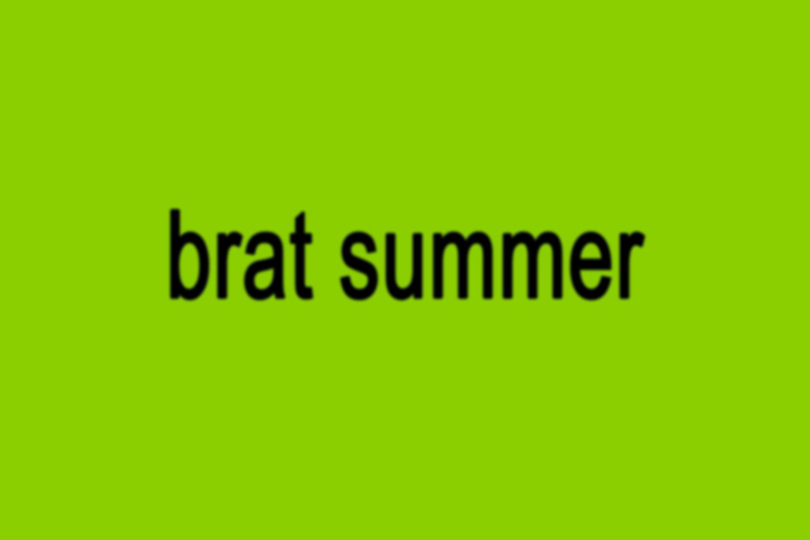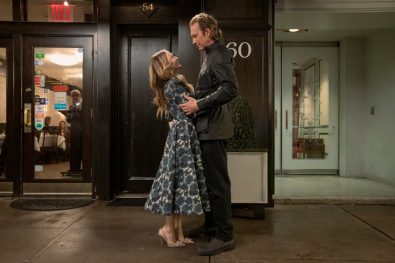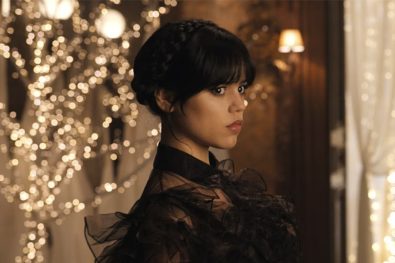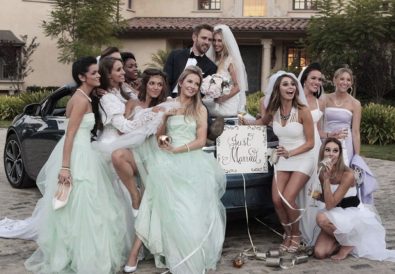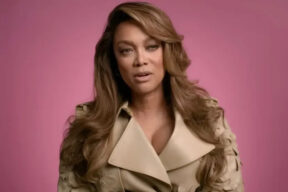By Anne T. Donahue
There are two important disclaimers I need to make before we start: first, I am an old person who was tragically late to the Charli XCX and Chappell Roam game. Second, when the Swifties inevitably find and read this, I beg you to pray for my soul.
This is not an anti-Swift hit piece. This is not a place where I’m going to go into why some of us are experiencing extreme T-Swift fatigue amidst a tour that seems to have begun before any of us were even born. This isn’t me suggesting that 31 songs on an album that’s continually released to avert other artists from reaching the number one spot are a) too many songs, and b) please revisit the first point. I am not calling The Tortured Poets Department a colossal bummer of a record or arguing that while some of the songs are certified bangers, the other 20-or-so are the opposite of the feelings I tend to equate with a sunshine-based season. I am not saying any of those things. I am merely writing them here and telling you now that if you were to interpret my feelings as proof that I have reached gargantuan heights of Taylor fatigue, I have not once said that overtly and I wish to be excluded from that narrative.
What I am saying is thank whatever-higher-power-you-believe-in for Chappell Roan.
When she packed Osheaga and Lollapalooza the last week, I felt like I was watching my own child surpass her own meteoric potential; living/singing/dancing proof that the summer of Chappell, of Charli, of Billie, and (the spring) of Ariana had successfully breathed precious new life into the pop music landscape. The voices! The talent! The production! The mixes! While Brat Summer has since been co-opted by politicians and your boyfriend’s mom (it’s fine! This is how culture works, live and let live!), it now encompasses a new approach to culture that’s been a long time coming: actual authenticity. Now (more than ever), pop artists are depicting themselves exactly as they are and leaning into the absolute mess that results in the making of a fully-formed person.
This, to me, is important to pop and to life in general, and we see this in the artists whose work resonates decades later. In the nineties and early 2000s, there were artists like TLC, Salt-n-Peppa, Tori Amos, Fiona Apple, Lauryn Hill, and Missy Elliott (to name a very, very small few), who explicitly celebrated reality and their own ideologies, experiences, and full spectrums of emotional development. And while bubble gum pop is an invaluable genre, the majority of mainstream late-2000s/early 2010s saw less “this is who I am, please go fuck yourself” and more of a polished approach to music-making. The 2020s are a complete deconstruction of the latter, and thank goodness.
While Tina Fey may have told Los Culteristas that authenticity is expensive, we’re living in an era in which anything but authenticity feels cunning and calculated. People, by default, are fucking disasters. We are flawed and complicated and contradict ourselves regularly. We’re self-destructive and largely unhinged and we’re ruled by feelings, which is never convenient.
And I love that. The older I get, the less I’m interested in appearing as anything other than a person, and above all, a person who does not have the time to leave Easter eggs about my life for the people paying attention to me to piece together. (And not just because not a soul is paying attention to me, thank the lord.) To shape a narrative about one’s self is a very smart business plan, but in real life, most of us are those flailing inflatable mascot-things that sit outside of car washes, and we get very tired by 3 p.m. because everything is exhausting and costs too much money. Authenticity is what’s actually free. And it’s a language spoken by everyone who is too fucking tired to appear put-together anymore.
What I’m saying is that this generation of pop stars seems to understand that. Chappell sings about blossoming into the woman she now is through incredible storytelling and a sharp sense of humour. Charli XCX writes about her partying, her insecurities, and not fitting in with her Top 40 counterparts. Sabrina Carpenter, a Disney album, has given us “Don’t embarrass me, motherfucker” as what I now consider a disclaimer I will be using amidst the contemporary landscape. Billie Eilish is full-on navigating her sexuality and sense of self. Even Ariana, though now a veteran of the pop world, used Eternal Sunshine to shirk the notion that she owes any explanation whatsoever about her personal life. This is the authenticity we’re looking for.
And it’s refreshing. Right now, as our economy plummets, as our governments disappoint us, as another American election creeps into our newsfeeds, and as various crises promise our new normal will be inherently terrifying, I want pop music to veer into chaos. I want musicians to reject the idea that a mainstream artist can be “messy” but only as much as it supports a public persona. I want creative people to give us exciting, interesting, passionate music that makes the people who love their work feel something, too. “Brat” may be an album, a meme, and now an arm of election publicity, but it also connotes something I think pop’s finally ready for: artists who also happen to be people.
Still not sure what Brat Summer is? Read: What Is Brat Summer? The Charli XCX Trend, Explained
Need a little more Anne? Read more from Anne T. Donahue right here!

